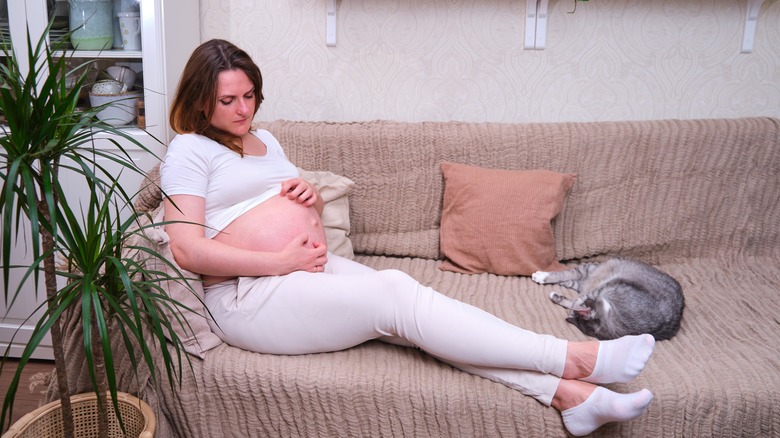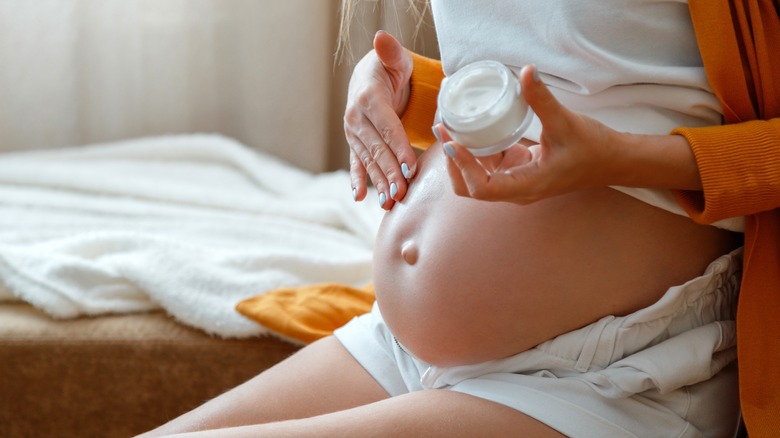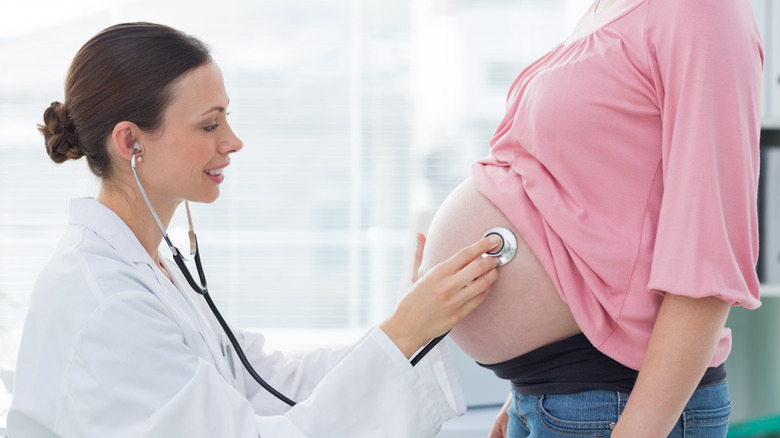What Pregnant Women Need To Consider When Dealing With Chronic Skin Disorders
During pregnancy, women's bodies can go through a number of changes, including an increase in breast size, lightheadedness, and heartburn. These changes take place as the mother's body begins to adjust to accommodate the needs of the fetus. The pulmonary system, for example, will undergo a number of alterations in order to ensure that the baby has the proper blood flow, oxygen, and nutrients (via Axia Women's Health).
However, in addition to these changes, many women have to factor in preexisting conditions, such as eczema, shares What to Expect. A chronic skin condition marked by dry, flaky skin, eczema affects more than 30 million people and tends to be seen more in women than men. Due to fluctuations in hormones, women can find themselves developing eczema and other skin conditions, like psoriasis, during pregnancy, while women who already suffer from skin problems may experience flare-ups (per the American Academy of Dermatology Association).
Treating the skin conditions
Women who are pregnant and suffering from either psoriasis or eczema have to take certain precautions when considering treatment, according to the American Academy of Dermatology Association. This starts with what medications and treatments women should be using to manage their symptoms. A number of medications used to treat chronic skin conditions suppress the immune system as a means of reducing inflammation and are not approved for use by expectant mothers. As such, it's recommended that pregnant women talk with both their dermatologist and their obstetrician to find effective treatments that will keep the mother and the baby safe.
Acne can also be a problem for women who are expecting, possibly due to the excess production of sebum as a result of fluctuating hormones (via the Mayo Clinic). Luckily, there are a number of self-care options women can undertake when stricken with acne during pregnancy, including washing with warm soap and water, avoiding greasy cosmetics and sunscreens, and shampooing regularly. However, women should avoid certain medications, including Isotretinoin, Tazarotene, and Spironolactone (per the American Academy of Dermatology Association).
Some skin conditions can be more serious than others
In addition to conditions such as psoriasis and eczema, pregnant women may also develop a condition known as pruritic urticarial papules and plaques of pregnancy, or PUPPP (via Cleveland Clinic). This condition is similar to hives, presenting as an itchy rash around the belly that can spread to the thighs, buttocks, breasts, and arms. Women with PUPPP can find some alleviation in oatmeal baths, cold showers, and compresses. They can also talk to a doctor, who may be able to offer some medications, such as antihistamine creams, to help alleviate PUPPP symptoms.
A rare but serious condition that can develop is called pustular psoriasis of pregnancy or PPP, according to Medical News Today. Women who develop PPP, which usually shows up in the third trimester, will experience inflammation on their skin, along with pustules that can spread across the body. They can also develop symptoms such as fever, delirium, and diarrhea. PPP can even be life-threatening to both the mother and the fetus. Therefore, if you are pregnant and either currently have a skin condition or develop any symptoms along the way, consult with your dermatologist and obstetrician to develop a course of treatment that will keep you and your baby safe.



